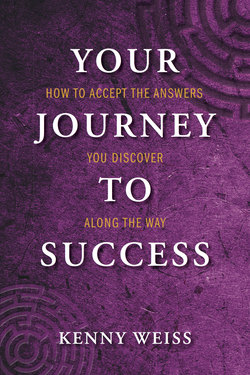Читать книгу Your Journey to Success: How to Accept the Answers You Discover Along the Way - Kenny Weiss - Страница 6
На сайте Литреса книга снята с продажи.
Trauma Wears Many Different Faces
ОглавлениеSome people equate trauma to something big like war, death, extreme acts of violence, physical abuse, sexual abuse, or natural disasters. While those are all examples of trauma, trauma doesn’t have to be big like that. It can be any significant negative event or incident that makes us feel bad, scared, ashamed, or hurt. What trauma is to each of us depends on a variety of factors, including age. No matter what kind of childhood we’ve had, nobody escapes trauma while growing up. If you define trauma as any sense of loss of self, we have all been traumatized as children. Like it or not, events from our childhood shape us. Without being intentional, parents, teachers, and coaches inflict trauma in simple, subtle ways like making sarcastic comments, being dismissive, being late, and not valuing our time. Being controlling, being judgmental, or always having to be right are other ways that adults may inflict trauma on children. It is just like the kind and loving words my dad said to me. His intent was to love me but I felt shame.
We may experience big traumas later in life, like the death of a loved one, divorce, or a tragic accident. But those bigger traumas evoke the same feelings we had in response to the often more subtle original traumas we experienced as children. How we cope with life depends on how we make sense of those traumas. For those of us who haven’t been taught how to deal with our trauma, we get stuck living in the worst day ever. The intense feelings of those moments replay themselves throughout our life because, in an effort to heal, we unintentionally and proactively seek them out and re-inflict them upon ourselves.
At any age, we tend to rationalize trauma, to minimize it, suppress it, repress it, and most of all deny it. We have to do all this so we can survive it. Now, as adults, we are completely unaware that we are reliving our trauma daily. Many clients who come into my office believe they have never suffered any trauma. That is how severe the disease of denial is in our culture. I have yet to see a person who is not stuck in this cycle. No one is immune, regardless of personality type or degree of trauma suffered. We stay stuck because no one has taught us about it and we don’t know we’re affected. It has been my experience that if any part of our personal or professional life is not where we want it to be, it is rooted in the trauma cycle I am about to describe here. Unaddressed trauma survives in a vacuum, fueling our thoughts and behaviors, so we inadvertently re-create the same feelings we had when we first experienced the trauma. We call this the Worst Day Cycle.
